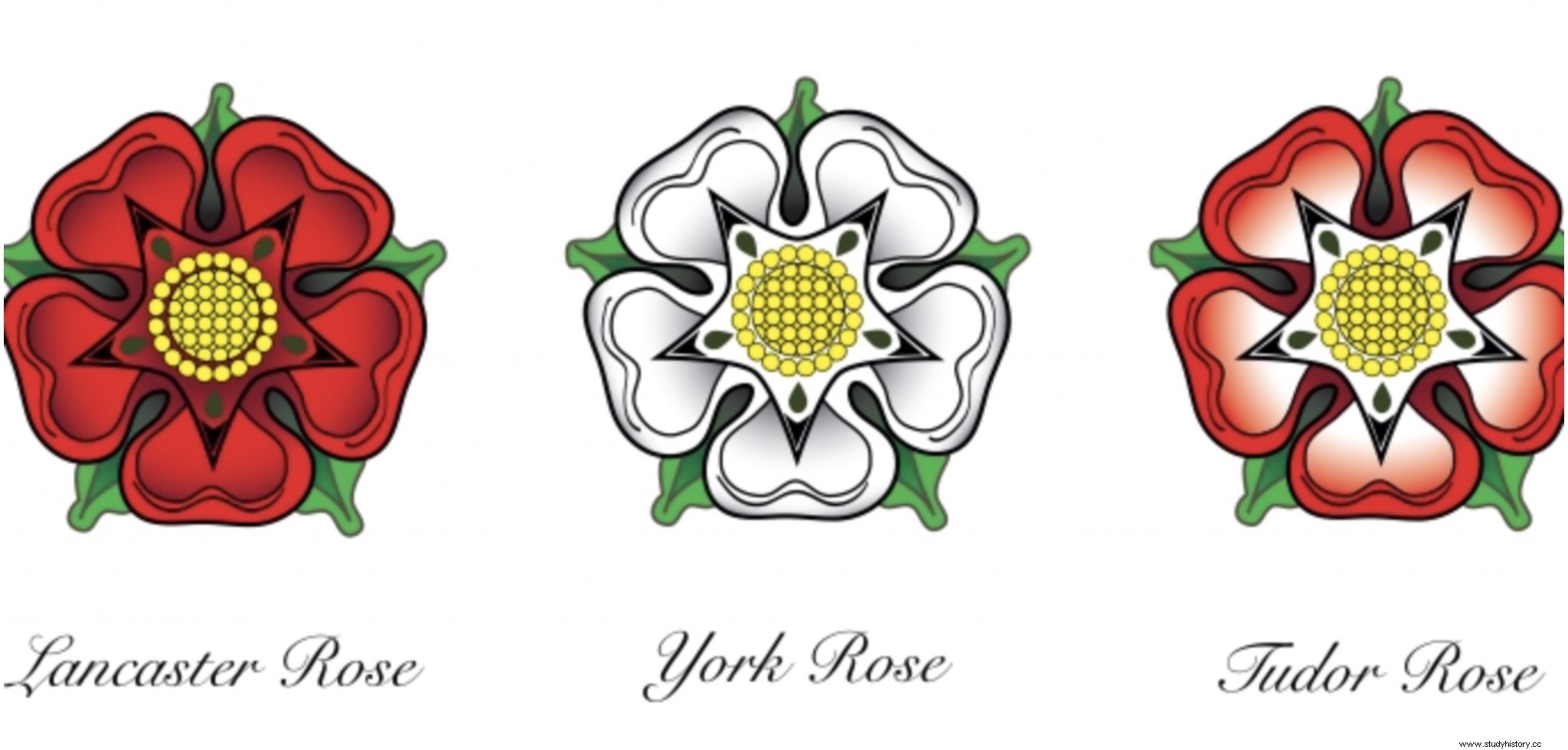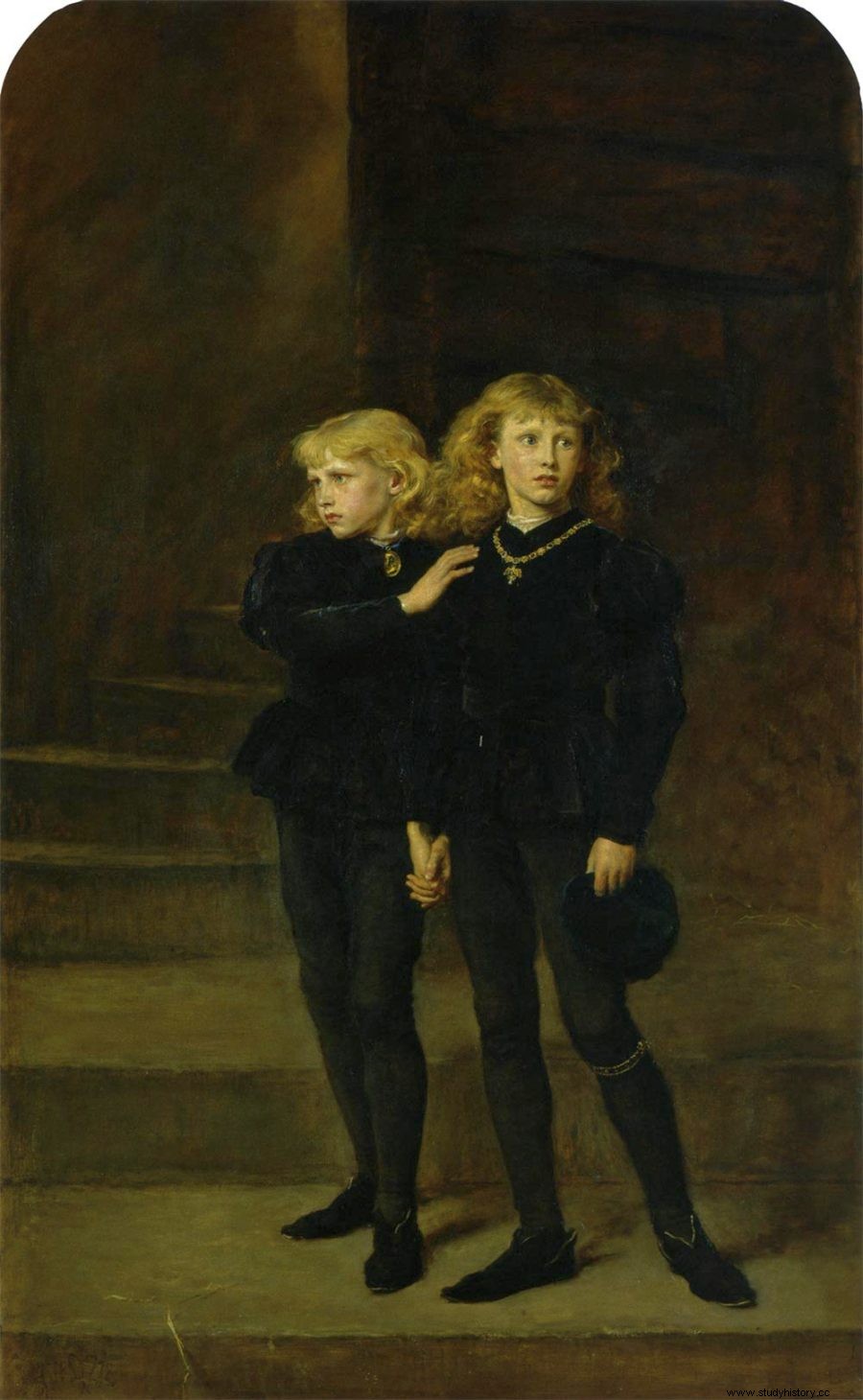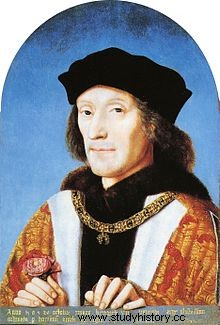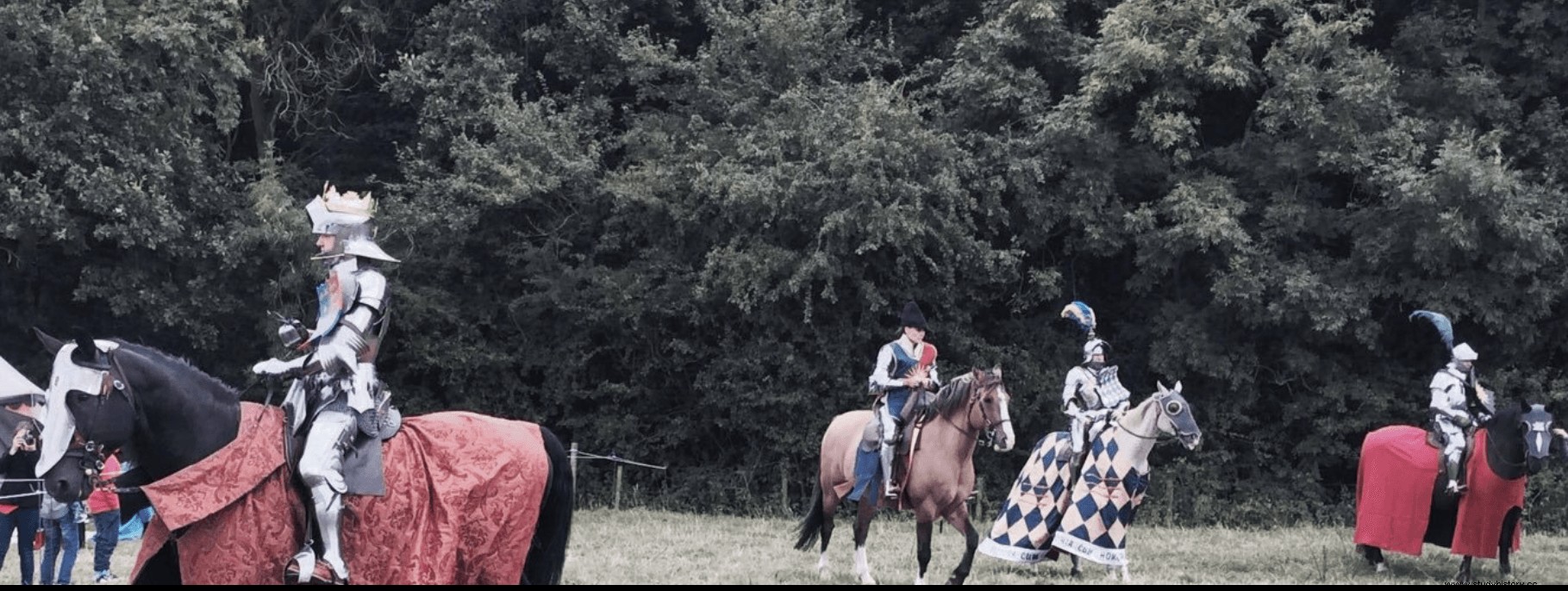Fifth and final entry on the landings from the mainland who sought and succeeded in deposing the occupant of the English throne. We continue with the war of the Roses.

V.- 1485:the war of the Roses. Richard III vs. Henry Tudor
On April 9, 1483 Edward IV died. His son Edward V was to succeed him, but the little brother and right-hand man of the deceased king (Richard, Duke of Gloucester) struck a blow that ended with Edward V and his brother, also called Richard, imprisoned in the Tower of London, with Parliament declaring the children of Edward IV and Elizabeth Woodville illegitimate and Gloucester crowned as King Richard III.

What happened to the princes of the Tower of London is one of the great enigmas of English history and continues to stir up lively controversy today in their country, but it goes beyond the scope of this article. What interests us here is how Richard III would end up losing the throne at the hands of Henry Tudor. This forces us to return to speak of John of Ghent, father of Henry IV and Catherine de Valois, wife of Henry V.
John of Gaunt had three children with his mistress Catherine Swynford, who took the surname Beaufort. Henry IV validated his father's union with Swynford. However, he made it very clear that such a patina of legitimacy did not imply recognition of any claim to his father's titles:no man named Beaufort would ever be in line for the throne of England. English author Nathan Amin disagrees with this statement.
As for the widow of Henry V, Catherine of Valois, she had met on her return to England a Welsh nobleman named Owen Tudor with whom she had had up to five children, all of them half-brothers of Henry VI. Q>
One of the women of the Beaufort family, Margaret, married one of Catherine and Owen's sons, Edmund. After the death of Henry VI and his son, the cause of the House of Lancaster had become headed by Margaret Beaufort and her son with Edmund, Henry Tudor, who was in exile in France.
Richard III's coup d'état and suspicions about the death of the princes of the Tower of London brought together internal and external discontent with the new situation. The widow of Edward IV, Elizabeth Woodville, allied herself with her former enemy, Margaret Beaufort, and they agreed that if her son (Henry Tudor) managed to come to the throne, he would marry her daughter (Elizabeth of York) .

Henry made a first attempt to land in England in 1483, which was a failure as a result of which conspirators on his behalf such as the Duke of Buckingham were executed. In 1485 Henry Tudor tried again and managed to land at Milford Haven (Wales) at the head of a small troop of French mercenaries. His intention was to go to London and proclaim himself king, and he was gathering the support of various disaffected with Richard III along the way. Richard traveled from Nottingham to Leicester to cut off Henry's route and summoned all the lords of the realm, though not all of them heeded his call.
Both armies met at Bosworth on August 22, 1485. The best known version of this battle is the one contained in Shakespeare's play Richard III (in which the monarch pronounces the famous phrase:"A horse, my kingdom for a horse"). However, Shakespeare's view of the Battle of Bosworth in particular and of Richard III's reign in general cannot be called objective or unbiased.
The royal troops were somewhat outnumbered, but the important Stanley family retinue did not stand alongside the royal formation, but stood on a hill between the two armies. The Stanleys had fought alongside the Yorks in the Wars of the Roses, but the marriage of lord Thomas Stanley with Margaret Beaufort made the Stanleys decide to side with Henry early in the battle.

Tudor decided to advance towards the enemy. Ricardo saw the movement and charged determined to end the life of his rival. But in the charge he fell from his horse. According to legend, his escort tried to talk him out of it, but Richard pointed out that on that day he would live or die as King of England.
Seeing the king dismounted, Henry's troops rushed against him and Richard received multiple wounds that cost him his life. The battle had lasted just over an hour and changed the history of England. It was the last charge of the Plantagenets, who lost their throne that day to the famous Tudor dynasty.
At the end of the battle, the winner went to London, where he was crowned as Henry VII. He had Parliament set the date of his proclamation as king the day before the Battle of Bosworth, thus making Richard III and all his followers rebels and traitors to the Crown.
Richard III's body was moved to Leicester, where he was buried without ceremony. Traces of his remains were lost for more than five hundred years, until they were found in 2012 in a Leicester car park... but that's another story.
